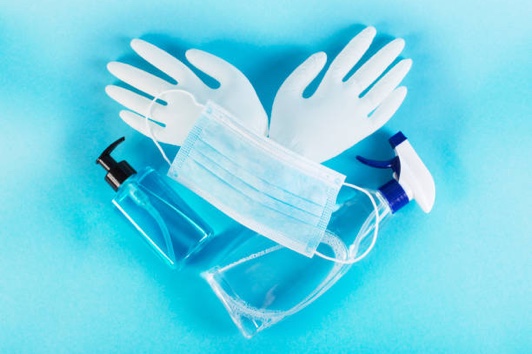Creating a More Just and Merciful World
Five Basic Needs for Hospital Safety

Health care professionals need to take care of themselves to be able to care for patients
Standing at the front lines of medical care, they face risks on a daily basis. The coronavirus pandemic has put a spotlight on the essential services health care workers provide. Many of these caregivers are working around the clock, under the most stressful and dire circumstances, to treat patients.
The current crisis emphasizes the importance of hospital and care facility safety. In addition to administering care to patients, hospital staff are under pressure to meet frequently changing governmental guidelines and directives. Health care providers now have the opportunity to improve safety in ways that can last beyond the pandemic.
Those who work in the health care field face challenges in normal times or otherwise. Health professionals have basic needs their organizations must care for. Here are five of the basic concerns and precautions that must be taken at all times.
- A Clean Environment
Hospitals, clinics and health facilities need to be clean in order to prevent the transmission of infections. Illness from these infections can cause irreparable bodily harm, increase the costs of health care and in severe cases result in death. The spread of infection can be reduced by following proper hygiene, sanitation and control standards. According to the World Health Organization (WHO), these measures include handwashing, wearing gloves and personal protective equipment, cleaning and disinfecting after each patient, and communication about infections and effective quarantines.
- Safe Handling of Patients, Equipment, and Drugs
Careful patient handling and transfer is a priority for health facilities. Patients unable to manage themselves require lifts and transfer devices to ensure safety for themselves and their caregivers. Additionally, special handing requirements for needles and hazardous drugs must be followed. Every day, health care workers are exposed to dangerous and potentially deadly bloodborne pathogens through contaminated needlesticks, sharps or splash exposures. Enforcement of policy, better surveillance and reporting systems, ongoing training, and promoting a culture of workplace safety have been identified as ways to emphasize the importance of safe patient handling.
- Injury Prevention
Cleanliness and workplace safety support the overall goal to prevent injuries. A comprehensive, proactive safety and health management system protects workers and improves the quality of patient care. Identifying and fixing workplace hazards is an important part of the collaborative process to prevent injuries and illness. Everyone in a health care organization can take ownership of the goal of improving hospital safety to ensure that hazards are identified earlier, effective controls are put in place, people are adequately trained and processes are designed and function in a manner that delivers consistent safety and health performance.
- Support for Emotional Well-being
Hospital administrative teams must ensure proper processes and protective equipment are in place to keep their staff healthy — physically and psychologically. Recent studies on the impact of pandemics on health professionals show there is a prevalence of anxiety and depressive symptoms. Compassion and empathy must extend beyond patient care. This includes peer-to-peer and leadership support as well as access to emotional support programs that allow health care professionals to manage stress and restore mental health.
- Protection Against Workplace Bullying
A safe workplace for health professionals also includes one of respect. Workplace bullying can compromise the quality of patient care. Health care workers who feel intimidated or belittled can become disengaged from their work, which could lead to errors that might cause harm to patients. Health care facilities can effectively reduce the likelihood of bullying by consistently enforcing policies for all staff members, providing regular training on workplace communication and etiquette, and encouraging staff to speak out.
Education and training are critical to the success of health care organizations.
Hospitals and health care facilities need professionals who not only understand the basic safety needs, but have skills to apply quality care in a compassionate and respectful way.
Carlow University offers health sciences degree programs for students who are passionate about providing patient care in a variety of settings. Our programs include Pre-Physical Therapy, Pre-Speech Language Pathology, Pre-Occupational Therapy, and Pre-Physician Assistant majors—preparing students for graduate-level studies and careers in health care.
